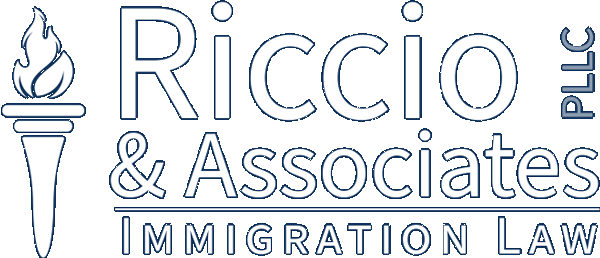Since the enactment of the Immigration and Nationality Act in 1952, Congress has attempted to achieve three basic goals: the reunification of families; the provision of workers needed in the U.S. economy; and the resettlement of refugees. With the enactment of the Immigration Act of 1990, a fourth basis for immigration has been established: diversity.
Consequently, under the current law, there are four “basic” methods of acquiring Lawful Permanent Resident (LPR) status:
Sponsorship by a specific close relative who is a U.S. citizen or an LPR
Sponsorship by an employer with an offer of employment qualifying for a Labor Certification, or exempt therefrom
Proving entitlement to refugee or asylum status
Qualifying as a “diversity” immigrant
1. FAMILY BASED IMMIGRATION
Family-Based Immigration is allocated up to 465,000 visas per year. This total includes immediate relatives of U.S. citizens (who themselves may immigrate in unlimited numbers but are “counted” toward the numerical limitation); but a minimum of 226,000 visas must be made available to the four preference categories.
Nonquota Family Immigrants (not subject to numerical limitation themselves, but counted toward the annual “cap”):
Spouses of U.S. citizens (“Conditional Resident Status”): requires Joint Petition before end of Two Year Period, or Waiver of Joint Petition Requirement in event of separation or divorce).
Immediate Relatives of U.S. citizens, other than spouses: (parents of adult (age 21 or over) U.S. citizens; children of U.S. citizens, including step-children, adopted children, and orphans).
Preference Family Immigrants (subject to numerical limitations)
The four Preference Categories established for Family-Based Immigrants are as follows:
First Preference: unmarried sons and daughters of U.S citizens (23,400)
Second Preference: spouses* and minor children of Lawful Permanent Residents, and unmarried sons and daughters of Lawful Permanent Residents (114,200)(at least 77% reserved for spouses and minor children) (*spouses of LPR’s also obtain Conditional Resident Status if married for less than two years)
Third Preference: married sons and daughters of U.S. citizens (23,400)
Fourth Preference: brothers and sisters of adult U.S. citizens (65,000)
2. EMPLOYMENT-BASED IMMIGRATION
Employment-Based Immigration is allocated up to 140,000 visas per year. There are five categories of Employment-Based Immigrants:
Group 1 (the “E1″ category). Priority Workers (40,000)(never requires a Labor Certification)
a. aliens with extraordinary ability in the arts, sciences, education, business or athletics
Requires (1) sustained national or international acclaim (2) achievements recognized through extensive documentation (3) intent to work in area of ability (4) must substantially benefit prospectively the U.S.
b. outstanding professors and researchers
Requires (1) international recognition as outstanding (2) at least 3 years teaching or research experience (3) must have tenured or tenure track teaching position, or comparable research position, with a hospital, university, research institution, or a private firm which employs at least three full-time researchers and has demonstrated research accomplishments.
c. multinational executives or managers
Requires employment with sponsor, its subsidiary or affiliate abroad for at least one year in the three preceding years, in a “managerial” or “executive” capacity
Group 2 (the “E2″ category). Professionals Holding Advanced Degrees (or equivalent) and Aliens of “Exceptional Ability” (40,000) (usually requires a Labor Certification)
“advanced degree” means a degree above a Bachelor’s Degree.
a Bachelor’s Degree together with at least five years of progressively responsible experience may be deemed the equivalent of an advanced degree.
an applicant seeking Group 2 classification without an advanced degree must establish “exceptional ability”, which requires, among other things, at least ten years of experience in the job offered.
Although this category usually requires a Labor Certification, this may be waived by the Attorney General if shown to be in the “national interest”; such factors as improving the U.S. economy; improving the wages and working conditions of U.S. workers; improving education and training programs for U.S. children and under qualified U.S. workers; improving health care; providing more affordable housing for young and/or older poorer Americans; or improving the environment of the U.S. and making more productive use of natural resources may be considered.
Group 3 (the “E3″ category). Skilled Workers, Professionals Holding Basic Degrees, and “Other Workers” (40,000) (always requires a Labor Certification)
a.Skilled workers who have at least two years training or experience, not of temporary or seasonal nature, for which qualified workers are not available in the U.S.
b. professionals with a Bachelors Degree
c. other workers, including unskilled labor (limited to 10,000 of the total 40,000 allocated to Group 3) not of temporary or seasonal nature, for which qualified workers are not available in the U.S.
Group 4. Special Immigrants (10,000)
Ministers and religious workers
Group 5. Employment Creation (10,000)
Requires $1 million investment leading to employment of at least 10 U.S. workers in a newly created enterprise (after the enactment of the Immigration Act of 1990), or 500,000 investment if business located in a high unemployment area (3,000 of the total 10,000 reserved for these investors
3. REFUGEE/ASYLUM BASED IMMIGRATION
Must prove a “well-founded fear of persecution” on account of (1) race (2) religion (3) national origin (4) political opinion (5) membership in a particular social group
Persons outside the U.S. seeking entry apply at U.S. Consulates or INS offices abroad and if approved will be authorized to enter the U.S. as a refugee
Persons within the U.S. fearing persecution apply at INS offices and if approved are granted asylum status
4. DIVERSITY BASED IMMIGRATION
The permanent diversity program (known as the “Visa Lottery”) has been in place since October 1, 1994, providing LPR status for natives of geographic areas which have traditionally been underrepresented in U.S. immigration patterns. Diversity immigrants do not require family or employment sponsorship, but must possess specified minimum education or job skills.
The worldwide level of diversity immigrants is equal to 55,000 for each fiscal year.
